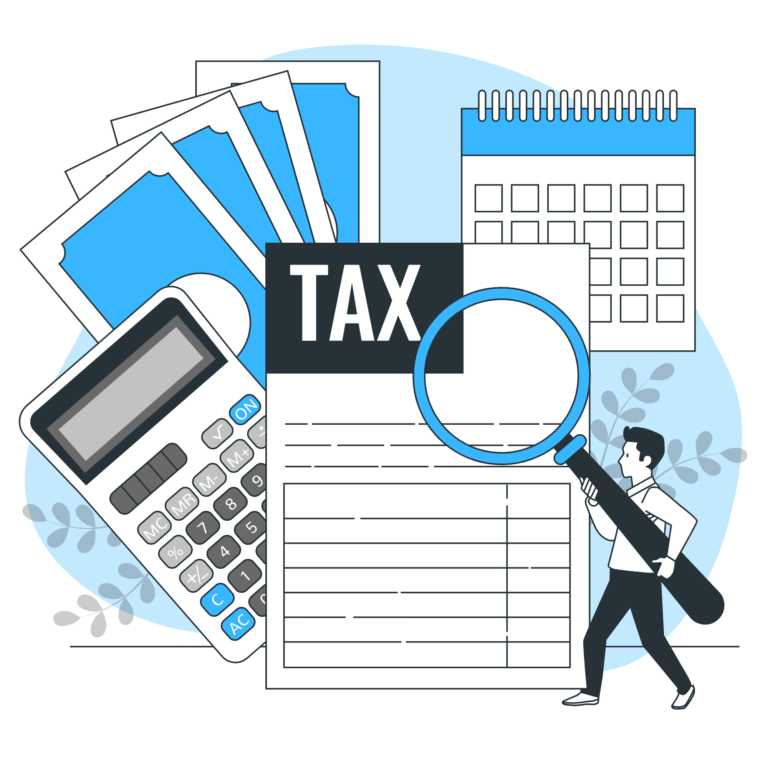What is a tax ruling?
A tax ruling, is binding information issued by the tax authority at the request of a taxpayer.
This information relates to the tax treatment of a planned and concrete state of affairs with a tax impact, aimed at ensuring taxation in accordance with the law. Although not a formal ruling, the tax ruling is important for the protection of taxpayers' good faith and confidence.
Tax rulings can be applied in a variety of situations, such as restructuring or the tax status of employee shareholding plans. They are useful for clarifying the tax implications in complex or ambiguous cases.
Pour qu’un ruling fiscal soit valable, plusieurs conditions doivent être remplies, notamment la pertinence du renseignement à la situation spécifique du contribuable, la compétence de l’autorité fiscale émettrice, l’incapacité du contribuable à reconnaître l’inexactitude du renseignement, et le fait que ce dernier ait agi de bonne foi en se basant sur ce renseignement.
Tax rulings provide legal certainty and essential predictability in tax matters.
Formal requirements for applying for a tax ruling
For the Direction des affaires fiscales (DAF) to assess your ruling request, it must meet the following 5 criteria:
- The request must be made in writing.
- It must provide a precise and complete description of the persons, facts and/or operations envisaged.
- A legal and tax analysis must be presented.
- The tax treatment requested must be clearly set out.
- La demande doit inclure une conclusion résumant les points à examiner par la DAF. Si elle est soumise par un mandataire, une procuration et une élection de domicile sont nécessaires
If these criteria are not met, the DAF may refuse the application.
The DAF offers ruling request templates, available for property transactions and other cases. These templates facilitate the drafting of requests. Once prepared, the request can be sent to the competent authority.
Where can I submit a Ruling request?
Si votre demande de ruling fiscal respecte les critères requis, vous pouvez la soumettre à l’administration fiscale.
The Directorate of Fiscal Affairs (DAF) of the cantonal tax authorities is generally responsible for tax rulings, with a few exceptions. Your request for a ruling should be addressed to the tax administration of your canton of residence.
Stages of a ruling request
La procédure de demande de ruling fiscal, également connue sous le nom de rescrit fiscal, peut différer selon les juridictions, mais suit généralement ces étapes :
- Preparing the application: The application must be drafted in accordance with the detailed instructions provided by the DAF, including a precise legal and tax analysis. If filed by a proxy, a power of attorney is required. Incomplete or inaccurate applications will be declared inadmissible.
- Submitting the request: Requests should be sent to the Directorate of Tax Affairs or, in certain cases of standard rulings, to the Directorate of Personal Taxation.
- Examination and response by the tax authority: After receipt, the DAF examines the application. If it complies, a tax adviser, assisted by a second adviser, will make a decision. The ruling may include factual conditions to justify the tax treatment requested.
- Application of the ruling: Although the ruling is not a formal decision, it has legal consequences based on the principle of good faith. Only the tax consequences explicitly mentioned in the application are validated.
Important: It is advisable to consult a tax expert before applying for a tax ruling.
Automatic exchange of information on tax matters
Since 1 January 2018, Switzerland has automatically exchanged information on advance rulings in tax matters (tax rulings) with other signatory countries, in accordance with the Convention of 25 January 1988 and its amended protocol of 2010. This exchange concerns the main aspects of rulings (such as details of the company concerned and the summary of the ruling) and applies to rulings issued since 2010 and in force from 1 January 2018.
Prior to this exchange, the Federal Tax Administration (FTA) gives the company concerned the opportunity to express its views, similar to the procedure in administrative assistance on request. Swiss practice in terms of automatic exchange of information (EAR) is regularly assessed by the Global Forum on Transparency and Exchange of Information for Tax Purposes.
The State receiving notification of a ruling may request the full document by means of a request for administrative assistance. This exchange is reciprocal: Switzerland can also request information from the other state.
Conclusion
Tax rulings in Switzerland are an essential legal tool that facilitates communication between taxpayers and the tax authorities, while providing legal certainty. This pragmatic method, which is unique in international comparison, not only encourages the search for appropriate solutions, but also represents a competitive advantage for Switzerland.
However, caution is advised in its use and consultation with a tax expert may be necessary.
FAQ – Tax ruling
The taxes for which a ruling is possible are the following:
- Corporation tax
- Capital tax
- Income tax
- Wealth tax
- Withholding tax
- Stamp duty
However, a tax ruling is not possible for VAT.
In Switzerland, any taxpayer, whether a company or an individual, can request a Tax ruling.
This can be particularly useful for complex or unusual transactions where there may be some uncertainty as to how they will be treated for tax purposes.
A Tax Ruling is generally valid as long as the facts and circumstances described in the application remain unchanged. If the facts or circumstances change, the Ruling may no longer be valid. It is therefore important to ensure that all the facts and circumstances are correctly described in the application.
A Tax Ruling is generally valid as long as the facts and circumstances described in the application remain unchanged. If the facts or circumstances change, the Ruling may no longer be valid. It is therefore important to ensure that all the facts and circumstances are correctly described in the application.





